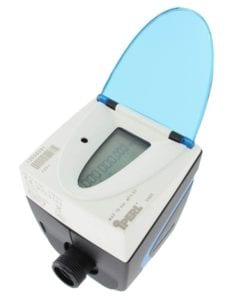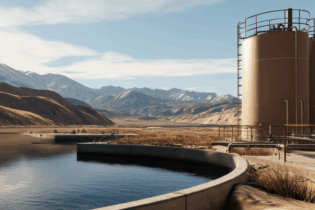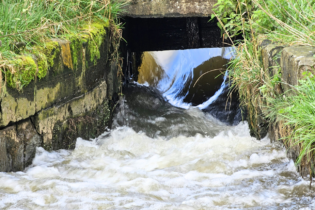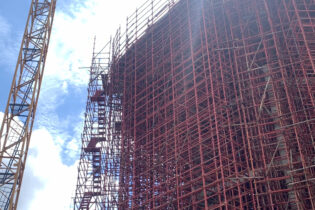There is a view that the next war will be over water and not oil; such is the shortage of this valuable asset. Advanced technologies offering greater accuracy and reliability in the management and monitoring of water therefore need to be embraced, sooner, rather than later.
The estimation is that one in six people has no access to potable water globally. The situation in Africa is exacerbated by an exponential population growth. These facts, coupled with South Africa’s scarce and diminishing water supply, now make it crucial that South African municipalities, consumers and businesses start to seriously address water inefficiencies. Ageing infrastructure Ageing water infrastructure needs to be upgraded or replaced, and with utility companies desperately short of skilled water practitioners, the time is right to consider the pros of smart water metering – a concept that offers many advantages. “There is no economic sense in repairing or recalibrating old water meters (frequently15 or older) when far more cost-efficient and accurate technology is now available. In the first instance, old water meters that have been repaired are generally not compatible with new data transmission technologies – a prerequisite for efficient reticulation management. Secondly, new generation meters have vastly improved measuring ranges and superior accuracy, which render old meters inefficient and inaccurate. There are immense savings to be made from embracing smart technology in the water sector,” says Basil Bold, MD of Sensus South Africa. Bold continues: “It is generally accepted that, on average, more than 35% of all water fed into municipal reticulation systems is unaccounted for i.e. lost due to pipe bursts, leakages, reservoir overflows, theft, inaccurate metering and purification losses. I believe the starting point to address these issues is better measurement. Improved measurement offers possibilities to identify and address major inefficiencies, develop new holistic water management strategies and educate the consumer with a view to encouraging a culture of water conservation. The average consumer is probably more aware of the price of a litre of milk than how much their water bill is and why. Measurement is knowledge, and the implementation of smart technology within our water sector is, I believe, the way forward to addressing the country’s critical water issues.” A smart water meterA smart water meter typically offers an ‘intelligent’ interface to an electronic data communication system with the primary focus on accurate measurement for billing purposes, but also near-to-real time information on possible leakage and consumption demand profiles. There is a perception that consumers are simply not willing to pay for water usage and the only effective method of extracting payment is by punitively cutting off supply. This is not correct. Generally, it has been found that consumers that have access to accurate information on consumption will actively manage their demand and recognise the need to pay for their consumption.
“It should be noted that a ‘smart meter’ in isolation serves little purpose. Without a reliable data transmission backbone and back-office management system, the information supplied by the meter is underutilised or wasted. Therefore the necessary technical infrastructure required to enable smart technology to operate optimally requires local authorities and delegated utility management companies to have the expertise to effectively interpret and use the information gathered effectively. There is a tendency to request smart meters in the belief that the device itself will resolve water billing and management issues. It is a prerequisite that adequate management expertise is available (internally or outsourced) prior to embarking on a smart meter upgrade,” comments Bold. Sensus regards itself as the smart water company that provides real world, proven solutions of highvalue metering, automated meter reading and advanced metering infrastructure system solutions for water. In 2012,Sensus conducted research into the effectiveness of smart water technology by a team of internationally recognised consultants in over 15 countries. The research included multiple choice and open-ended questions to various sized global water utilities. The resulting White Paper, Water 20/20: Bringing Smart Water Networks into Focus report stated that smart water networks can offer savings of up US$12.5 billion (R122.3 billion) per year, globally, and that leaked water costs utilities an estimated $9.6 billion per year. The savings that result from the utilisation of smart water technology can enable the utilities to reinvest some 5% back into their budget to improve water networks and help address the global water scarcity crisis. Sensus has recently introduced iPERL, a new state-of-the-art water measuring technology that offers intelligent end-point data functionality and replaces traditional water meters. The iPERL delivers sustained accuracy and value with a performance that is unaffected by installation conditions. It is simple, reliable, accurate and long lasting, with quick returns-on-investment and flexibility for future optimisation. The technology is environmentally friendly and has the lowest environmental impact possible. It is fully protected against all water network hazards and manufactured from fully recyclable materials. “To measure is to know, without this knowledge, the current water wastage will continue to lead us into the dire straits forecast,” concludes Bold.





